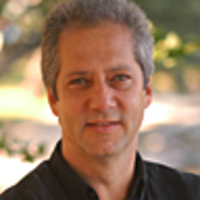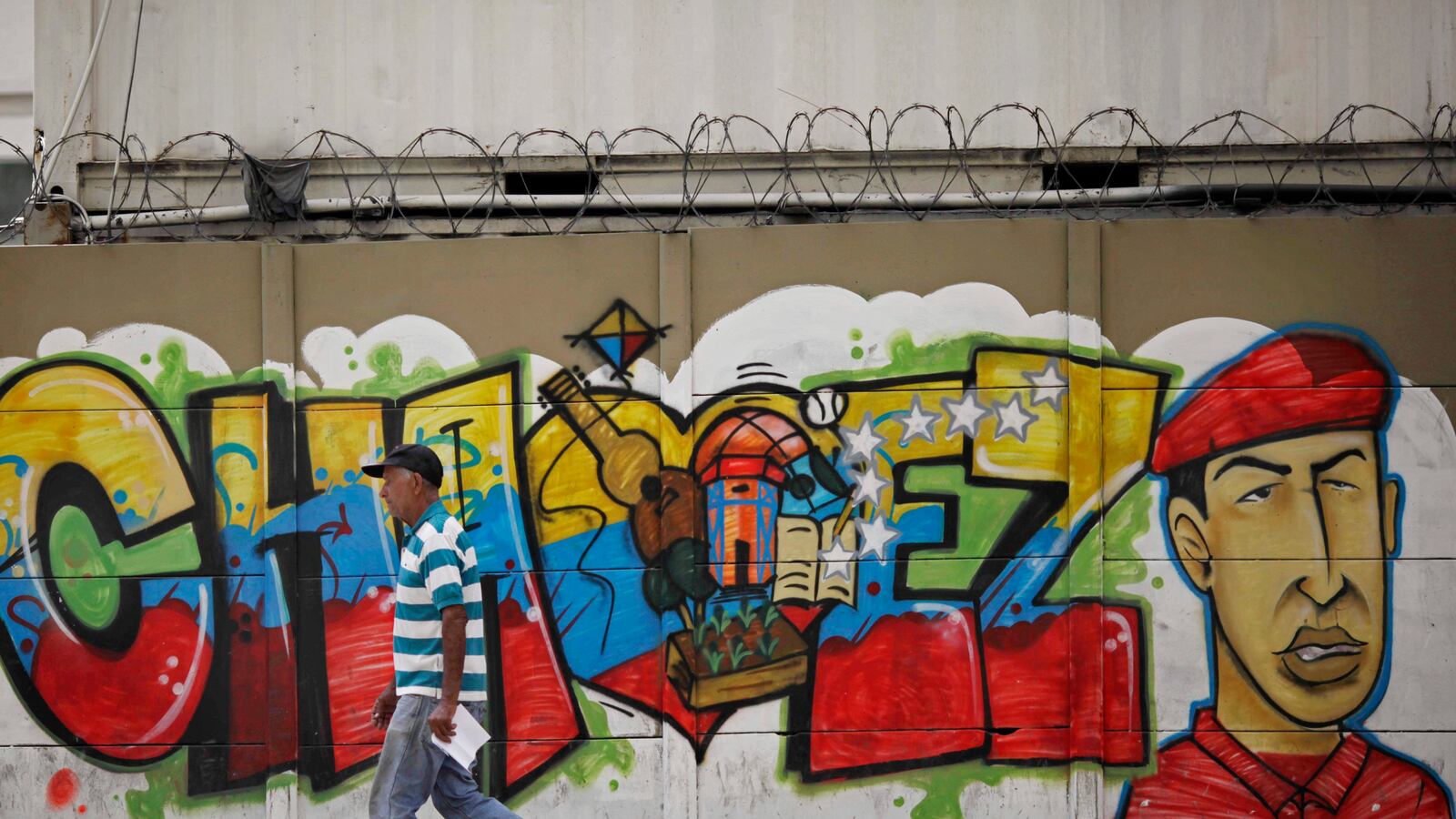Ever since he underwent surgery to remove a baseball-size tumor in his pelvis in June 2011, the prospect of Hugo Chavez’s demise has dominated political talking points on Latin America. Nineteen months and four operations later, the Venezuelan patient, who has survived coup attempts, palace intrigue, a resurgent opposition, and international outrage, appears finally to be running out of luck.

And for the first time in the last decade and a half, this oil-rich, politically fevered nation that has stoked acrimony and imaginations across the map is without a clear political script to follow or a narrator to tell it.
Whatever else can be said about Chavez’s 14-year run as president of Venezuela, the honchos of the corporate world stand humbled. Since Fidel Castro was in his prime—and that was decades ago—no other chief executive in the Western Hemisphere has managed a brand the way Chavez has.
Secular saint and clown-prince, the Venezuelan Supremo ruled virtually unchallenged since taking office in 1999. Along the way, he shaped his so-called Bolivarian revolution—a tout to 18th-century independence hero Simon Bolivar—for “21st-century socialism” into a durable political arrangement at home and went on to launch a successful road show, drawing eight Latin nations from the Andes to the Antilles into the fold.
That is also what makes Chavez’s eventual absence a riddle and, potentially, a ticking bomb. Steel-plated and outsize as it has become, Chavez’s revolution is as big and resistant as its founder, no more. Reelected last October for a third six-year mandate, Chavez never prepared a political successor. The Bolivarian model has always been the stuff of one man’s hyperactive imagination, one part command and control, two parts improvisation, oiled by graft and crowd control.
The presidential succession promises more of the same, but without the consummate Comandante to keep the peace—ever maintaining rivals at dagger point and yet somehow toeing the official line—all bets on the future of chavismo are off. Consider the Jan. 2 emergency summit in Havana, which saw key members of Chavez’s inner circle flock to his sickbed to swear loyalty and comradeship. “We vowed unity before the Commander,” announced Vice President Nicolas Maduro. “We are closer than ever,” echoed Diosdado Cabello, head of the National Assembly, immediately raising suspicions to the contrary.
But what is the next act in a revolution that was always played by ear? Chavez himself left a few stage notes just before admitting himself to a hospital in Havana, exhorting fellow Venezuelans and especially the ruling “Boligarchs” to fall in line behind Maduro, “one of the young leaders best able to lead in case I cannot.” Yet, according to the constitution, if Chavez dies before being sworn in, on Jan. 10, power automatically passes to Cabello as head of the National Assembly, who must then call for a new election within 30 days. If somehow, however, he reemerges from Cuba to take the oath of office, but is subsequently incapacitated at any time during the first four years of his mandate, elections also will be called.
In either case, and according to Chavez’s strict instructions, the government’s chosen candidate is Maduro. A former bus driver and transport-workers union leader, Maduro lacks the charisma and oratorical flourish of his mentor. His main asset is his absolute loyalty and his affinity with the ruling regime in Cuba, Chavez’s closest ally. As foreign minister, Maduro’s job was to patch up the fights Chavez frequently picked with neighbors and preferred enemies, such as Washington and Bogotá.

But a third and potentially more disturbing alternative also looms. What if Chavez lingers, and is neither sworn in nor declared unfit to lead? Chavez could be declared "temporarily absent," a narrowly legal if baldly political maneuver to forestall succession. Cabello himself alluded to the possibility when he recently floated the idea that the inauguration could be delayed, and government information minister Ernesto Villegas recently scolded newscasters at the Globovision television for referring to Maduro as “acting president.” The only legitimate Venezuelan leader, Villegas said, is Hugo Chavez, who was elected last Oct. 7 “with 8,191,132 votes.”
What could ensue is precisely what Venezuela’s democratic opposition fears most—a state of political limbo that would conveniently bend the constitutional rules and keep the ruling claque in power indefinitely.
Though Chavez’s opponents took a thumping in regional elections last month, losing 20 of 23 states, they reveled in the victory of Henrique Capriles Radonski, who gave Chavez a scare in the Oct. 7 presidential race and then routed Chavez’s pick, former Vice President Elias Jaua, for the governorship of wealthy Miranda state. Young, energetic, “simpático,” and with a reputation for competence, Capriles is the opposition’s best hope to unseat Chavismo through the ballot box.
All the more reason for loyal Bolivarians to game the system by skirting elections, according to Chavez’s foes. One of the most ardent among them is Diego Arria, Venezuela’s former ambassador to the United Nations, who also ran for president last year. Arria argues that Chavismo’s normally fractious inner circle is suddenly united in the mission to crush any challengers, even if it means shredding the constitution in the process. Scripting that effort, he claims, is Cuba, which has dispatched thousands of intelligence cadres to Venezuela to help keep tabs on dissidents and threats to the Bolivarian government, real or imagined.
“Everything is being decided in Havana,” says Arria. “The Cubans control Venezuelan intelligence and the armed forces. I believe not even Chavez knows what is going on.” That may be stretching things. In the fevered political climate of Caracas, conspiracy theories are as plentiful as red berets. One sure thing is that whether it’s Chavismo or the opposition, whoever takes charge in Caracas will have to contend with Chavez the myth—and run the risk of inevitably coming up short.






